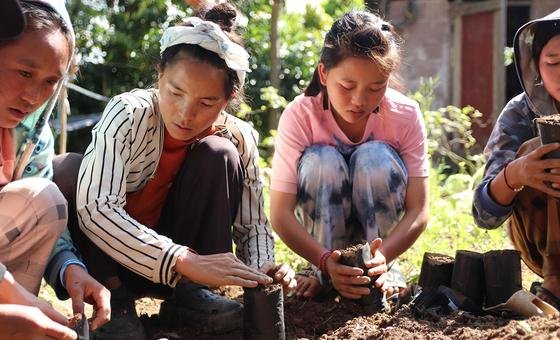The UN Organization for Women’s Empowerment (UN Women) shared these findings in a new report released just ahead of the ‘International Day for the Eradication of Poverty’ on 17 October.
The report found that more than two billion women and girls around the world are not getting the benefits of social security schemes, which is very alarming.
Since 2015, efforts to bring women under social protection have achieved some success, but the coverage gap is widening in most developing countries.
A focus on gender equality jeopardizes efforts to meet the 5th Sustainable Development Goal, with men benefiting disproportionately from such schemes.
The burden of poverty
According to the UN report, women and girls are the highest number of people facing poverty at every stage of life and age group. This discrepancy is most visible during the child-rearing years.
Women aged 25 to 34 are 25 percent more likely to be in extreme poverty than men.
Climate change and violent conflict are increasing this disparity. Women in vulnerable areas are seven and a half times more likely to fall into extreme poverty than in stable countries.
From 2022 onwards, food and energy prices have increased due to higher inflation rates, which have particularly affected women.
Despite this, only 18 percent of the more than 1,000 social protection measures adopted by governments in 171 countries target women’s economic security.
According to UN experts, this directly reflects that gender perspective, specific needs and sensitivities are often ignored.
Poor maternity protection
According to one estimate, more than 63 percent of women around the world give birth without the benefit of maternity planning. In sub-Saharan Africa, the figure is 94 percent.
There is a lack of financial support during maternity leave, which forces women to face a huge challenge financially.
In addition, they often have to compromise their own and their children’s health and well-being, and poverty is then perpetuated across generations.
Signs of progress
In some countries, there is an emphasis on ensuring gender equality in social security benefits. In Mongolia, maternity leave is also extended to informal workers, such as shepherds.
The paternity leave system has also been strengthened with the intention of supporting gender equality in childcare.
At the same time, national health insurance has been expanded to meet the needs of women living in rural areas in Senegal.

